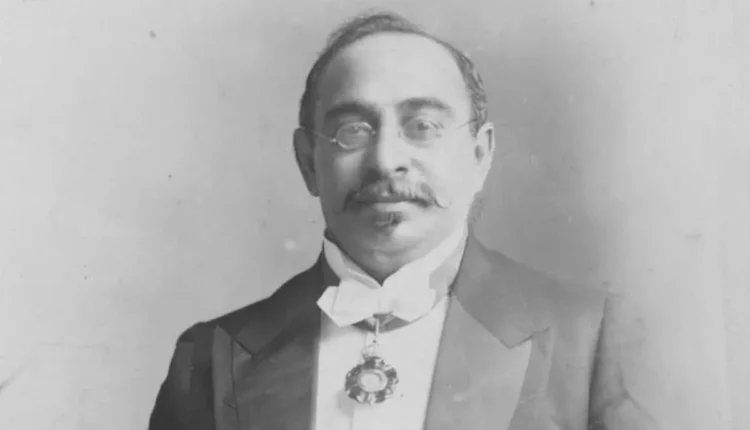In the annals of British political history, few figures stand as tall and resilient as Sir Mancherjee Merwanjee Bhownaggree. Born on August 15, 1851, in Bombay (now Mumbai), India, Bhownaggree’s life is a testament to perseverance, dedication, and an unwavering commitment to justice.
As the third British Member of Parliament (MP) of Indian descent, after David Ochterlony Dyce Sombre and fellow Parsi Dadabhai Naoroji, Bhownaggree carved a niche for himself, becoming a beacon of hope for many and the longest-serving British Asian MP until Keith Vaz’s tenure began in 1987.
Early Life and Education
Sir Mancherjee Merwanjee Bhownaggree was born into a merchant family in Bombay. His early years were marked by an intense pursuit of knowledge, which saw him attend Elphinstone College and the University of Bombay. Bhownaggree’s academic prowess was evident early on, and his passion for journalism led him to a career in the field shortly after completing his education.
At the tender age of 22, following the untimely demise of his father, Mancherjee Merwanjee Bhownaggree was appointed to succeed his father as the Bombay agency of the Kathiawar state of Bhavanagar. This early exposure to administrative responsibilities and governance set the stage for his future endeavors.
Journey to the United Kingdom
In 1882, Mancherjee Merwanjee Bhownaggree moved to the United Kingdom, where he was called to the bar at Lincoln’s Inn in 1885. His legal acumen and reformative zeal did not go unnoticed. The following year, the Maharaja appointed him as a judicial councillor, a position through which he introduced several far-reaching reforms.
By 1891, Mancherjee Merwanjee Bhownaggree had settled permanently in the United Kingdom, establishing himself as a lawyer and becoming a prominent figure in the Parsi community. He took on leadership roles, including the head of the Parsi organization in Europe and chairman of the Indian Social Club.
Political Career and Achievements
Bhownaggree’s political career took off when he joined the Conservative Party and was selected as their candidate for the Bethnal Green North East constituency in the 1895 general election.
At a time when his compatriot Dadabhai Naoroji was already making waves in the 1892-95 parliament, Bhownaggree emerged as a formidable force, becoming the second Indian of that era to enter the House of Commons and the only one to be re-elected in 1900.
His tenure in parliament was marked by a staunch support of British rule in India, yet he was a vigorous advocate for the rights of Indians overseas. Bhownaggree played a pivotal role in combating the disabilities faced by Indians in South Africa and other British dominions.
His comprehensive statement on the plight of Indians in the Transvaal post-annexation laid the groundwork for a blue-book (Cd. 2239, 1904), which influenced significant policy decisions.
Contributions and Legacy
Beyond his parliamentary contributions, Bhownaggree was a visionary who recognized the importance of technical and vocational education in India. Mancherjee Merwanjee Bhownaggree championed the cause of integrating practical skills with literary education, paving the way for future educational reforms.
After losing his seat in the 1906 general election, Mancherjee Merwanjee Bhownaggree retired from active politics but continued to contribute to society. He was a generous philanthropist, donating to numerous charities in memory of his deceased sister. His contributions to the Bhownaggree Gallery in the Commonwealth Institute remain a testament to his commitment to education and culture.
Writings and Intellectual Pursuits
Sir Mancherjee Merwanjee Bhownaggree was not just a politician but also an accomplished writer. In his early life, he authored a history of the constitution of the East India Company and translated Queen Victoria’s “Life in the Highlands” into Gujarati.
During World War I, he played a crucial role in countering German propaganda against British rule in India through a widely circulated booklet titled “The Verdict of India.”
Final Years and Death
Bhownaggree’s final years were spent in London, where he continued to inspire and lead. He passed away on November 14, 1933, at the age of 82. His final resting place is in the Parsi Section of Brookwood Cemetery, a fitting tribute to a man who dedicated his life to bridging cultures and advocating for justice.
Also Read:Hamisha Daryani Ahuja: Pioneering Cross-Cultural Storytelling

